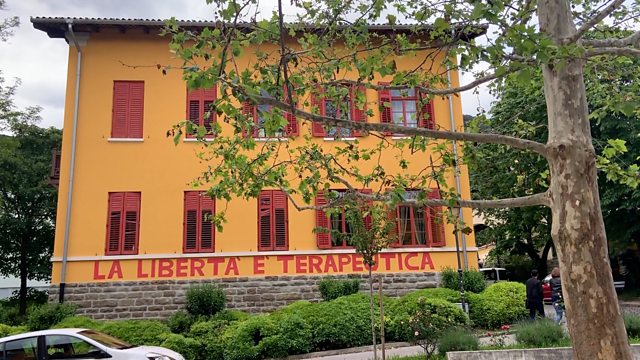TriesteÔÇÖs mental health ÔÇśrevolutionÔÇÖ
ItalyÔÇÖs decision to close its mental asylums in 1978 changed the way many think about mental health. We visit Trieste to find out what that legacy means today.
Each year, mental health practitioners from around the world visit Trieste in Italy to see what they can learn from the cityÔÇÖs approach to mental illness.
In 1978, Trieste led a ÔÇśrevolutionÔÇÖ in Italian mental health care by closing its asylums and ending the restraint of patients. Today the city is designated as a ÔÇścollaboration centreÔÇÖ by the World Health Organization in recognition of its pioneering work.
Reporter Ammar Ebrahim visits Trieste to see how the system works - from the informal community centres where people can drop in and stay as long as they need, to the businesses that offer career opportunities for those who have been through the system.
We hear about the cityÔÇÖs policy of ÔÇśno locked doorsÔÇÖ, and ask how Trieste deals with patients other societies may deem ÔÇśdangerousÔÇÖ.
Presenter: Tom Colls
Producer: Sam Judah
(Photo Caption: ÔÇťFreedom is therapeuticÔÇŁ written on a wall in Trieste / Photo Credit: ┤ˇ¤ˇ┤ź├Ż)
People fixing the world on YouTube
Watch stories of people changing their world on the World Service English YouTube channel
Podcast
-
![]()
People Fixing the World
Brilliant solutions to the worldÔÇÖs problems


